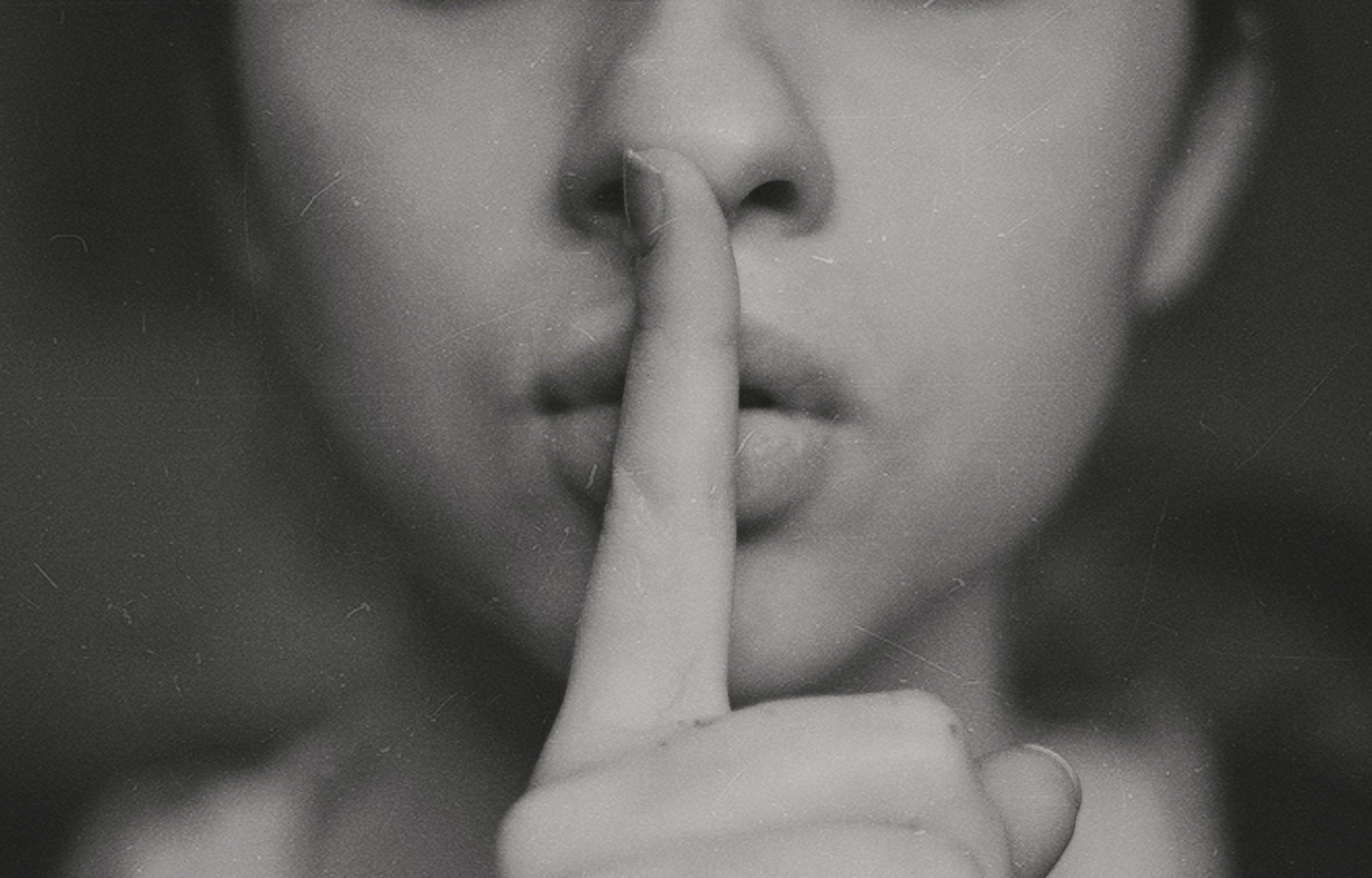The deafening sound of silence

As we move back towards COVID-dictated isolation, and the danger it brings of losing connection with those around us, I’m becoming aware of more and more contexts in which silence – a deafening silence – has been the order of the day for some time.
We may be silent in the face of ‘the difference between you and me’, when we’re fearful of expressing an opinion or a challenge, when we hold back because we don’t want to be first to articulate a statement or because it might make us vulnerable. In our Anglo-Saxon culture that’s often because of fear of, and/or uncertainty about, ostracism, punishment, discomfort, discrimination or even threat to a career if we break the silence and attract attention to ourselves for being different from the larger group. In other cultures – Finnish for example – silence is a normal part of everyday communication, in which space is given to others to speak, while Japanese culture values the elegant use of silence, which is itself viewed as a form of communication.
Holding back from challenge
Of course, there are many contexts in which silence is absolutely appropriate (the silence in a coaching session, for example, in which a coaching client is respectfully afforded space to simply be, or to think). Equally, the silence of nature is in fact part of its beauty: a silence inherent in its very being, and which is generous, nourishing, replenishing and restorative.
The kind of silence I’m talking about is a holding back from what needs to be called out or challenged – for example, not admitting you don’t know, or failing to speak up in the face of an injustice to oneself or others. It’s the kind of silence associated with not challenging an assumption made by a senior person or a peer – an assumption which actually distorts the basis of decision-making for the worse.
Silence about mental health challenges
Silence is noticeable in relation to people being reluctant to speak about their own or others’ mental health challenges (it’s fascinating to observe that this happens far less in relation to physical health challenges), as though there were shame in them – which, of course, there can be in the sufferer’s perception and experience.
Racial difference
I’m becoming increasingly aware of silence in the face of racial difference. Such difference is often obvious because of physical characteristics or differences of practice in everyday life. The individual who’s different from the majority often has to deal with difficulties unknown to, or not experienced by, the majority – overt or subtle discrimination, assumptions of all kinds, or even verbal abuse, for example. How often do those of us in the majority actually articulate the racial difference and enquire into the other’s experience? Often we stay silent, which puts at risk respectful connection in relationship – and at its worst, can create a gulf. This is particularly important at a time when the world needs not to be divided but to come together in connection and collaboration.
The cost of silence
While the apparent benefit of silence in such situations is to maintain the status quo – to avoid making waves which could potentially lead to discomfort or even conflict – silence may have a cost which is greater than the benefit. As we know from the work of Professor Amy Edmondson of Harvard University Business School, the danger of silence, when people don’t use their voices to admit mistakes, criticise the status quo, ask questions or offer ideas, causes the thinking power of a team to be diminished. At worst, damage is caused and negative outcomes are the consequence. This is the realm in which psychological safety brings a significant advantage: a climate in which individuals believe they won’t be undermined, criticised, ignored or punished for speaking up. In a context of psychological safety, when people use their voices, their own and their teams’ and organisations’ thinking power is released.
When mental ill-health is in play, but isn’t articulated, individuals’ health needs aren’t recognised or met. So they continue in silence, unsupported, while their condition deteriorates, corroding their wellbeing. I know of dramatic cases where an individual who seemed to be performing at a stellar level was actually struggling with their mental health until the moment (literally) when it – and they – imploded, and overnight the individual became unable to function. When a lack of mental health is made explicit it can be recognised, managed and treated, so that the individual can be supported to realise their potential.
When we fail to enter into conversation about, or to explicitly recognise racial difference, and both the richness it can bring and the individual’s experience of it, we fail to recognise, respect and acknowledge them. Worse, claims such as ‘I never even noticed you were black – I see you as just the same as everyone else’ denies the other the respect of knowing that we see them for who they are. We diminish them. When we articulate difference we recognise and can work with, and release, the resource that that difference can bring.
For leaders, recognition of voice, lack of health and the difference of race is critical in order to – first and foremost – acknowledge human beings in their fullness, and importantly, to release the potential of their teams and organisations more widely.
Photo by Kristina Flour on Unsplash


